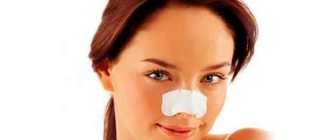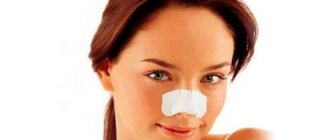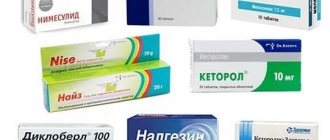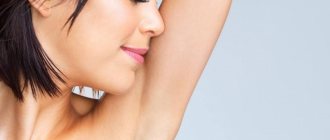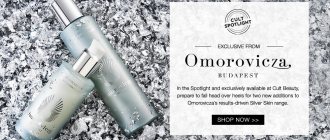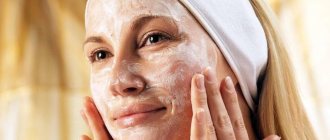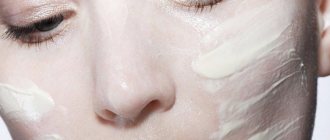What is hyperhidrosis?
Hyperhidrosis is excessive sweating without good reason. It can appear both on the entire body and in its individual areas: in the armpits, on the feet and palms, on the scalp and face, in large folds, for example, on the stomach or under the breasts.
Let us remember that sweating is a natural process. It is needed to regulate body temperature. When droplets of sweat evaporate from the surface of the skin, the body cools down. That’s why it’s so difficult for us to be in a hot, damp room, where due to air humidity, sweat stops evaporating.
The fresh sweat of a healthy person does not smell. The characteristic smell appears only after a while, when bacteria living on the body and clothing begin to multiply in sweaty areas. It is the waste products of these bacteria that cause the unpleasant odor.
How does it manifest?
In addition to the obvious symptoms of hyperhidrosis of the arms or legs, there are others. For example, the hands and soles feel cold and sticky to the touch. The skin on them is slightly reddened, the lines and furrows are clear and deep.
In people suffering from excessive sweating, embarrassment, withdrawal, and embarrassment are noticeable from the outside. They are afraid to extend their hand to shake hands, afraid of close physical contact, and have difficulty holding slippery objects.
Increased secretion often leads to irritation, inflammation of the skin, and infection. Common complications of hyperhidrosis on the feet include fungal infections of the skin and nails.
When this is no longer the norm: symptoms of hyperhidrosis
Hyperhidrosis begins to manifest itself gradually: at first, sweating is very scanty, almost imperceptible, then you notice small wet spots on your clothes, and finally, sweat begins to pour out “like a bucket.” In this case, the disease is often accompanied by other symptoms:
- Swelling of the arms, legs and face
- Cardiopalmus
- Soft tissue pain
- Redness and irritation of the skin
- Chills due to continuous evaporation of fluid from the skin
These symptoms can be aggravated by stress, expression of strong emotions, summer heat, as well as consumption of chocolate and coffee.
Treatment for hyperhidrosis: medicated antiperspirants, physical therapy, Botox, pills and surgery
In order to forget about hyperhidrosis forever, you need to consult a doctor and identify the root cause of the disease. Sweating can be a consequence of hormonal pathologies or an imbalance of the nervous system. Here are the most popular and very effective methods of treating hyperhidrosis.
Aluminum chloride medicinal antiperspirants - salt “plugs” in the pores
These are not the usual “rollers” and anti-sweat sprays that are sold in cosmetic stores. Aluminum chloride antiperspirants are medicinal products containing aluminum salts. This substance tightens pores and normalizes the functioning of the sweat glands. These antiperspirants do not just settle on the skin, but seem to “eat” into it and penetrate inside, to the base of the sweat glands. Remember a few rules for using medicated antiperspirants:
- Do not apply to dirty body
Before applying antiperspirant, be sure to cleanse your skin, for example, wipe it with toner, and ideally take a shower or bath.
- Apply only to dry skin
Have you taken a shower or bath? Wait until your body is dry before applying antiperspirant. Excess moisture on the skin will prevent active substances from penetrating the pores of the sweat glands.
- Use 3 hours before possible exercise
To get the most benefit from an antiperspirant, apply it no earlier than 3 hours before an event that will make your body sweat: physical activity, sports, or an event.
- Often ≠ Effective
Using antiperspirant too often can cause excessive pressure in the sweat gland ducts, which will reduce the effect of treatment. Use the product no more than once a day.
Electrophoresis - treatment of hyperhidrosis with current
Hyperhidrosis is also treated with physiotherapeutic methods. The main condition for their effectiveness is completing the entire course. One of the methods is drug electrophoresis. Before using the device, active components are applied to the “sweating” areas, and under the influence of current they penetrate deep into the skin.
Laser physiotherapy for hyperhidrosis (there are contraindications)
The laser method treats hyperhidrosis only in the armpit area. The laser destroys the sweat glands that secrete excess secretions, while the “healthy” ones are preserved. The effect of laser treatment lasts for a long time, but, alas, not forever. Another disadvantage of this method is a number of contraindications:
- Individual sensitivity to local anesthetics
- Acute respiratory diseases
- Cardiovascular diseases
- Diabetes
- Impaired liver and kidney functions;
- Bleeding disorders
- Inflammations on the skin
- Exacerbation of chronic diseases
- Pregnancy and lactation.
Electrosleep: when the cause of hyperhidrosis is nerves
The therapeutic effect of electrosleep lies in the sedative effect that the device has on the nervous system. Thus, electrosleep “calms down” frayed nerves, which, as we already know, are also often the cause of profuse sweating.
It is worth remembering that physical therapy is an effective measure, but temporary. After a course of procedures, sweating returns to normal for 2–3 weeks, after which the problems will recur and the course will have to be repeated.
Botox injections for hyperhidrosis: effect - up to 8 months
Botox helps treat sweat in three areas: the armpits, palms and soles. Botulinum toxin A, which is part of it, blocks the nerve endings that approach the sweat glands. As a result, sweating stops for 4-8 months, then the procedure is repeated.
Treatment of hyperhidrosis with tablets (only after consultation with a doctor!)
In the medical treatment of hyperhidrosis, several groups of drugs are used:
- Sedative herbal parathas - valerian, motherwort, persen. Prescribed if the cause of sweating is “raging” emotions.
- Tranquilizers. Also medications for “nerves,” but they are prescribed rarely and temporarily, because tranquilizers are addictive. Prescribed strictly by a doctor!
- Products based on the poisonous belladonna plant - bellataminal, bellaspon, belloid. They reduce the secretion of sweat glands.
Surgery - radical therapy for hyperhidrosis
Only as a last resort, when conservative treatment methods do not work, is surgery indicated. Surgeons practice local operations in areas of increased sweating:
— Liposuction of the armpit area is done for obesity.
— Excision of the skin in the area of hypersecretion.
— Closed curettage — removal of nerve endings and part of the sweat glands.
Such manipulations are performed under local anesthesia through microincisions of 10-12 mm.
What are the causes of the disease
Causes of the disease:
- physical;
- hereditary;
- psycho-emotional.
Physical reasons include:
- disruption of the thyroid gland due to diabetes, obesity;
- high blood pressure;
- menopause;
- high body temperature;
- sudden weight loss;
- infectious diseases;
- cardiovascular diseases;
- hormonal age-related changes.
Most diseases provoke increased blood pressure and sweating.
Psycho-emotional causes of hyperhidrosis
- increased emotionality;
- stressful situation;
- neurological diseases, including increased excitability;
- psychogenic state.
When psychoemotional problems are relieved, hyperhidrosis becomes noticeably less pronounced.
Three “store-bought” remedies for hyperhidrosis under 300 rubles
Hyperhidrosis can be cured, or rather, its cause can be eliminated only after visiting a doctor. Passing all the tests, identifying the cause of sweating and undergoing a course of treatment (and perhaps more than one!) is a very slow process. Well, while diagnosis and therapy last, make sure that only you know about your illness - help yourself. And we will tell you exactly how.
Deodorants and antiperspirants
The mechanism of action of deodorant and antiperspirant is different. The first destroys bacteria and eliminates the smell of sweat with aromatic fragrances, while the second blocks the ducts of the sweat glands and prevents fluid from leaking out. Their duration of action is also different. Deodorant is active for only a few hours, and antiperspirant is active for about a day.
Alunite is a natural mineral
Alunite or alum stone is a 100% natural salt crystal. Here are its advantages:
- Kills bacteria - the cause of unpleasant odor
- Does not interfere with the functioning of sweat glands
- Safe for the skin, as it does not contain “chemicals” - alcohols, fragrances and emulsifiers
- Eliminates inflammation and itching (relevant after shaving!)
- Does not cause allergies
- Heals wounds
You can purchase this stone at a pharmacy or cosmetic store. It's inexpensive and lasts a long time.
Teymurova (foot spray) - against sweat and odor
Teymurova's spray fights sweating and other unpleasant consequences of hyperhidrosis of the legs. The components of the spray are responsible for this:
— Boric and salicylic acids, sodium tetraborate and methenamine eliminate sweating and unpleasant odor;
— Essential oils of tea tree, lavender and lemon balm have an antibacterial effect;
— Peppermint oil relieves fatigue, cools, deodorizes and refreshes the skin of the feet.
Reusable sweat-absorbent products: top, bodice and inserts
There are reusable anti-sweat products. They protect clothes from stains and streaks for 24 hours, after which they are washed in warm water. These products can last for more than one year.
- A top with sweat protection zones is worn on the body instead of underwear or together with it. Its coverage area is wider than that of earbuds, as is the area of clothing protection.
- The fabric bodice is worn like a regular bra and fastens in the front, under the bust. And adjustable straps allow you to “tailor” its size to suit you.
- Reusable fabric pads are made of quick-drying, breathable material. They are not attached to clothing, but in the armpit using a silicone adjustable tape.
Treatment of hyperhidrosis with folk remedies
Boric acid - disinfection + healing
This cheap product is sold in pharmacies without a prescription. It has a wide spectrum of action:
- helps with armpit sweating
- disinfects
- quickly heals wounds.
The drug is available in the form of powder, ointment or liquid.
Hydrogen peroxide - antiseptic + “drying”
Hydrogen peroxide kills germs and dries wet skin. In the fight against hyperhidrosis, a 3% solution is best suited. Dilute peroxide in 200-250 ml of warm water in a ratio of 1:10 and saturate a napkin with the solution. Repeat the procedure no more than 2 times a day.
Soda - acid-base balance (pH)
Soda normalizes the functioning of the sweat glands and the pH of the epidermis. Dissolve a tablespoon of baking soda in a glass of warm water. Then soak a napkin or gauze swab with this liquid and treat the skin in the problem area.
Potassium permanganate - narrowing pores + eliminating odor
Potassium permanganate is a cheap, affordable remedy that can easily eliminate phlegm in the armpits. Manganese also neutralizes unpleasant odors and narrows sweat channels. Potassium permanganate is diluted in warm boiled water until it turns slightly pink. Rub the skin with this liquid 3-4 times a day.
Apple cider vinegar for sweat and foot odor
Natural 5-6% apple cider vinegar contains vitamins, acids and beneficial microelements. It normalizes sweating and tones the skin. Prepare a foot bath: mix 200 ml of vinegar and 4-5 liters of water in a basin, then soak your feet in the solution for 15-20 minutes. Carry out this procedure 1-2 times a week.
Tar soap - dries and disinfects
Tar soap is sold in any cosmetic store. When fighting hyperhidrosis, simply replace your toilet soap with tar soap and wash problem areas with it morning and evening.
Treatment of hyperhidrosis with herbs - cheap and natural
Herbs that you can buy inexpensively at a pharmacy or collect yourself will help reduce sweating and odor.
- Chamomile is a strong antiseptic and tissue regenerator;
- Sage - against heavy sweating;
- Oak bark - for hyperhidrosis in the armpits;
- Melissa is a source of esters, tannins, caffeic acid
- Sequence - relieves inflammation, tightens pores and reduces sweating;
- Lemon juice - instantly removes odor.
Herbs can be used individually or mixed together. From herbs you can prepare infusions for rubdowns, make foot baths, warm compresses and add to baths with decoctions.
Prognosis and prevention
Hyperhidrosis is incurable, but not dangerous. However, it affects the quality of life, so complex therapy cannot be avoided. Effective methods make it possible to get rid of unpleasant symptoms for a long time. In extreme cases, surgery is used, but this requires strong evidence.
Prevention of hyperhidrosis is as follows:
- Using socks and tights made from natural fabrics that absorb moisture well and allow air to pass through.
- Shoes should be made of breathable materials. In summer you should not wear closed shoes.
- Twice a day you need to wash your feet with warm water. Contrast baths will help with excessive sweating.
- Flat feet are a common cause of hyperhidrosis. Healthy feet sweat less often.
- Antibacterial herbal products not only eliminate sweat, but also kill odor-causing bacteria.
- Any diseases must be treated on time and until complete recovery, before they lead to chronic hyperhidrosis.
Calmness and the absence of nervous tension are the key to healthy legs without excessive sweating.
Nowadays, you no longer have to spend a lot of time performing complex and unpleasant procedures at home. It is much easier to seek help from real professionals - the Veronika Herba beauty and health center, equipped with effective and modern equipment.
Why clients choose Veronika Herba Beauty and Health Center:
- This is a beauty center where you can undergo treatment for foot hyperhidrosis at a reasonable cost, and you will be treated by one of the best specialists in Moscow. This is a completely different, higher level of service!
- You can receive qualified help at any time convenient for you. The beauty center is open from 9:00 to 21:00, seven days a week. The main thing is to agree with your doctor in advance on the date and time of your appointment.
Sign up for a consultation with a specialist by phone +7 (495) 085-15-13
, and you will see for yourself!
Lifestyle with excessive sweating
We found out that hyperhidrosis is treatable. But to help yourself during treatment and avoid the recurrence of sweating, you need to lead a correct lifestyle.
Maintain good personal hygiene
People suffering from hyperhidrosis risk getting a whole “bouquet” of its consequences - skin irritations, pustular and fungal diseases. To prevent this from happening, keep your body clean. Take a shower twice a day - morning and evening.
Follow a diet
Nutrition affects the functioning of the sweat glands. For example, caffeine and theobromine activate sweat production. Eliminate from your diet foods that contain these substances: strong tea, coffee, cocoa, chocolate and cola.
Do not overuse seasonings, especially spicy ones. For hot and fatty foods, prefer light vegetable salads and steamed dishes.
Minimize your consumption of alcoholic beverages. Alcohol brutally increases sweating and unpleasant odor. Replace it with mineral water or weak herbal tea.
Wear clothes and shoes made from natural materials
Try to wear clothes made from natural, breathable fabrics - linen or cotton. Also choose shoes from natural materials, such as leather. And dress according to the weather so you don't get too hot.
Monitor the microclimate in your home
Maintain the temperature in your home, especially in hot weather and during the heating season. Ventilate the rooms, humidify the air, and, if necessary, get a fan or air conditioner.
Minimize stress
You already know that stress and nervous tension aggravate the problem of excessive sweating. Therefore, try to protect yourself from negativity:
- Communicate less with unpleasant people
- Don't get overworked at work
- Don't quarrel with loved ones
- Please yourself with pleasant little things
What examination is needed?
If you have excessive sweating, you need a dermatologist, and if you have hyperhidrosis of the feet, you need a podiatrist. To find out the type and causes of hyperhidrosis, the doctor will definitely conduct an examination before treatment. If necessary, he will refer you to a neurologist or other specialized specialists.
Answering the following questions will help you determine the type of hyperhidrosis:
- Does sweating happen for no apparent reason?
- Is it the same on both sides of the body?
- How does it affect quality of life?
- How often do episodes of excessive sweating occur?
- When did the first symptoms appear?
- Do relatives have this problem?
- Do you sweat during night sleep?
Special functional tests have been developed to assess the degree of hyperhidrosis. They are used to determine the amount of sweat secreted, the intensity of sweating, and find the places on the body where it is most pronounced. Most tests have no practical diagnostic value. They are used for scientific research or to evaluate the effectiveness of treatment.
These methods include:
- calculation of body weight loss over a certain time;
- absorption of sweat from the skin or in special chambers by various absorbers;
- measurement of skin surface resistance, which changes depending on the intensity of sweating;
- provocative tests with the introduction of substances that stimulate or inhibit sweating;
- tests using substances that can change color when combined with sweat (iodine-starch test).
In case of secondary hyperhidrosis, the doctor will ask you in detail about your health status. He will prescribe blood and urine tests, hormonal tests, and measure blood pressure to find the true cause. If you have a chronic illness or are taking any medications, tell your doctor.
Bottom line: What to do if you have hyperhidrosis?
- First, make an appointment with your doctor. Perhaps hyperhidrosis is just a symptom of another, more serious disease.
- Lead a healthy lifestyle. It has never hurt anyone, especially with hyperhidrosis.
- Treat systemically. Perform the procedures regularly, methodically, and don’t mess around!
- “Fight” hyperhidrosis in a comprehensive manner. While you are treating the root cause, eliminate the consequences - sweat, odor, stains on clothes.
- Do not be nervous. As the great Bob Marley sang: “Don't worry, be happy!”
